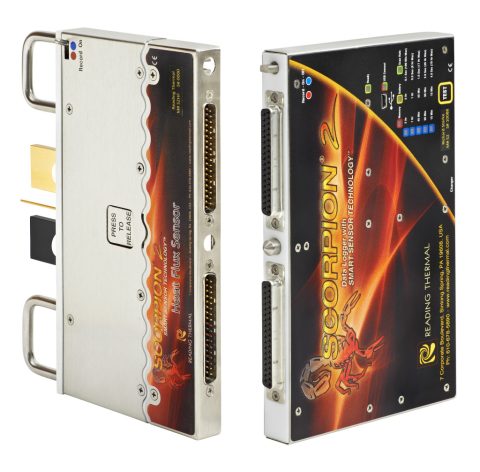Temperature monitoring for commercial ovens is a critical component of food safety. It ensures that products are processed, stored, and transported within safe temperature ranges to prevent contamination and spoilage. Regulatory compliance in the food industry mandates stringent temperature control to protect public health. Here’s a look at how Reading Thermal temperature monitoring products help businesses meet regulatory requirements.
Preventing Foodborne Illnesses
Temperature monitoring is essential for preventing foodborne illnesses caused by pathogens such as Salmonella, E. coli, and Listeria. These bacteria thrive in specific temperature ranges, known as the “danger zone” (40°F to 140°F or 4°C to 60°C). By maintaining temperatures outside this range, food handlers can significantly reduce the risk of contamination.
Ensuring Product Quality
Consistent temperature control helps maintain the quality and integrity of food products. Proper temperature monitoring ensures that foods retain nutritional value, texture, and flavor, enhancing customer satisfaction and loyalty.
Extending Shelf Life
Accurate temperature monitoring helps extend the shelf life of perishable products. By keeping foods at optimal temperatures, businesses can reduce spoilage and waste, resulting in cost savings and improved sustainability.
Real-Time Monitoring
Our modern temperature monitoring systems provide real-time data on the temperature of food products at every stage of the supply chain. These systems use sensors and data loggers to continuously monitor temperatures, ensuring immediate detection of deviations from safe ranges.
Automated Alerts
Advanced temperature monitoring systems also feature automated alert features. When temperatures deviate from predefined safe ranges, these systems send instant alerts to responsible personnel, enabling prompt corrective actions.
Data Logging and Documentation
Compliance with regulatory standards requires detailed documentation of temperature data. Temperature monitoring systems automatically log data, creating comprehensive records that can be used for audits, inspections, and compliance verification.
Calibration and Maintenance
Regular calibration and maintenance of temperature monitoring equipment are crucial for ensuring accuracy and reliability. Compliance requires that businesses keep calibration and maintenance activities records to demonstrate due diligence.
Benefits of Temperature Monitoring for Compliance
By maintaining precise temperature control, businesses can significantly reduce the risk of foodborne illnesses, ensuring the safety of their products and protecting public health. Accurate temperature monitoring helps companies meet regulatory requirements, avoiding potential fines, penalties, and legal issues associated with non-compliance. It also streamlines the data collection and analysis process, reducing the staff burden and improving overall operational efficiency.
Temperature monitoring also boosts customer confidence. Customers are more likely to purchase products from businesses committed to food safety.
Implementation of Temperature Monitoring Systems
Businesses should choose temperature monitoring equipment that meets their specific needs. Factors to consider include the type of food products, the supply chain stages to be monitored, and the regulatory requirements. Other key components to successful implementation include the following:
- Training and awareness: Staff should be trained on the importance of temperature monitoring and how to use the monitoring systems effectively. Regular training sessions can help ensure that all employees know their roles in maintaining food safety.
- Integration with existing systems: Reading Thermal temperature monitoring systems can be easily integrated with existing quality control and inventory management systems to provide a comprehensive view of food safety and operational efficiency.
Investing in advanced temperature monitoring for commercial ovens from Reading Thermal is a proactive step towards achieving these goals and safeguarding both consumers and the business. Use our online form or call 610-678-5890 for more information.

